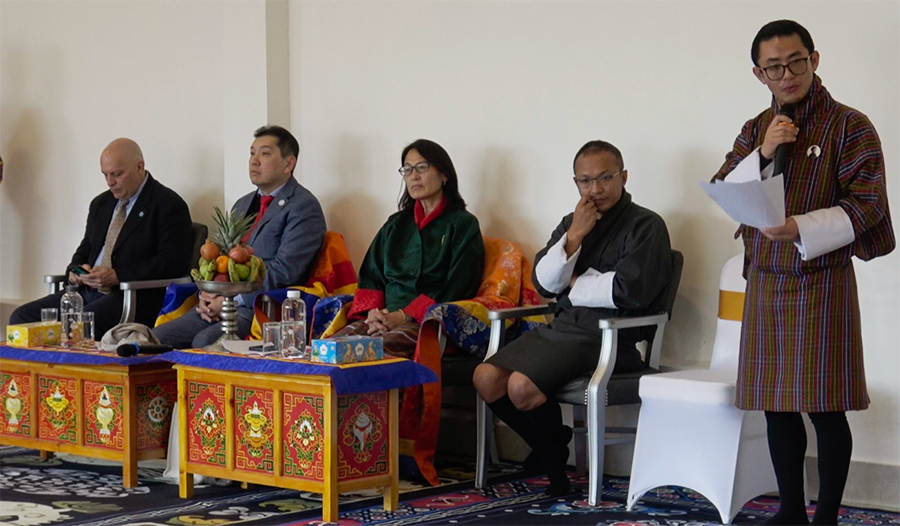 Bhutan has faced several zoonotic diseases, including COVID-19 and recurring outbreaks of avian, swine flu, and rabies, all of which have significantly impacted both animal and human health. To combat these, the Bhutan One Health Strategy was first launched in 2016, with a secretariat at the Royal Centre for Disease Control established in 2020. As the second edition of the five-year strategy ended in 2023, 50 experts are gathering in Paro for a five-day workshop to refine the document for the next phase. The workshop began yesterday.
Bhutan has faced several zoonotic diseases, including COVID-19 and recurring outbreaks of avian, swine flu, and rabies, all of which have significantly impacted both animal and human health. To combat these, the Bhutan One Health Strategy was first launched in 2016, with a secretariat at the Royal Centre for Disease Control established in 2020. As the second edition of the five-year strategy ended in 2023, 50 experts are gathering in Paro for a five-day workshop to refine the document for the next phase. The workshop began yesterday.
Bhutan’s One Health Strategy is a collaborative effort that brings four key sectors such as public health, animal health, environment, and wildlife conservation together.
The approach focuses on early detection in animals to prevent human transmission, quick response, food security, efficient use of resources, and securing funding and technical assistance from donor agencies.
The gathering will address and deliberate past challenges and refine the strategy, expected to roll out next year.
“We developed the One Health Strategy as a five-year collaborative plan. The previous strategy ended in 2023, during which we faced many challenges. By reviewing and learning from them, we will create a new plan to combat zoonotic diseases. This collaborative approach will generate new ideas to break the chain of transmission,” said Deki Yangzom, Chief Programme Officer at the Communicable Disease Division, Health Ministry.
“A few years back, the involvement of multi-sectoral agencies was not enough; it was mainly the Ministry of Health and the Ministry of Agriculture of Livestock. And now, we call it quadripartite, where human health, animal health, the environment and wildlife are very important. So, now, whatever the information or the gaps in the document will be incorporated,” said Dr Vijay Raika, Food and Agriculture Organisation, Country Office.
The gathering will finalise the third edition of the One Health Strategy document and prepare investment plans to ensure sustainable funding and implementation by next month.
The need to institutionalise ‘One Health Concept’ was recommended during the National and regional One Health Symposium held in 2013. For Bhutan, the strategic framework and action plan were prepared a year later.
Namgay Wangchuk, Paro
Edited by Sonam Pem








